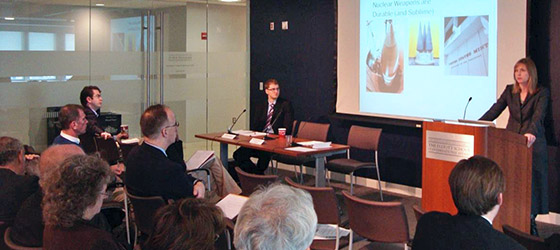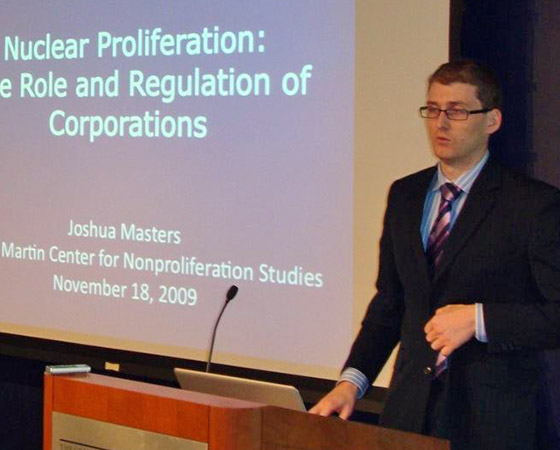Keynote Speaker
Jon B. Wolfsthal
Special Adviser to the Vice President for Nonproliferation and Nuclear Security and Director for Nonproliferation, National Security Council
Please note that Mr. Wolfsthal’s remarks were off-the-record and cannot be quoted or published.
Anne Harrington de Santana
University of Chicago
“Nuclear Weapons as the Currency of Power: Deconstructing the Fetishism of Force“
There are important similarities between the pattern of behavior Karl Marx identified with respect to commodities—a pattern he called “fetishism”—and the pattern of behavior identified in this article with respect to military force. Marx identified money as the mature expression of commodity fetishism; the author identifies nuclear weapons as the mature expression of the fetishism of force. As such, nuclear weapons function as the currency of power in the international system. This article lays out a theory of nuclear fetishism by adapting four themes that are characteristic of the pattern of behavior known as fetishism: materiality, historicality, efficacy, and reification. By applying these categories to the fetishism of nuclear weapons, the author shows that nuclear weapons represent a new social form consistent with, yet distinct from, other fetish objects.
Joshua Masters
New York University School of Law
“Nuclear Proliferation: The Role and Regulation of Corporations“
As the potential for the involvement of corporations in the manufacture of nuclear weapons has increased, particularly through dual-use technology, global regulation has failed to keep pace. Where regulation of private corporations does exist, in the form of treaties, UN resolutions, or more informal arrangements, the obligations fall only on states. This state of affairs is a result of international law’s traditional deference to state sovereignty; yet, it has led to significant shortcomings in the global regulatory regime, where states are unwilling or unable to meet their obligations. While radical departures from the traditional model of international law might remove the regulatory gaps caused by noncompliant states, such changes are unrealistic in the current political climate. More realistic changes must be focused on, offering greater recognition of the role of private corporations in nuclear proliferation and increasing state compliance with existing regulation.

Anne Harrington de Santana

Anne Harrington de Santana

Joshua Masters
